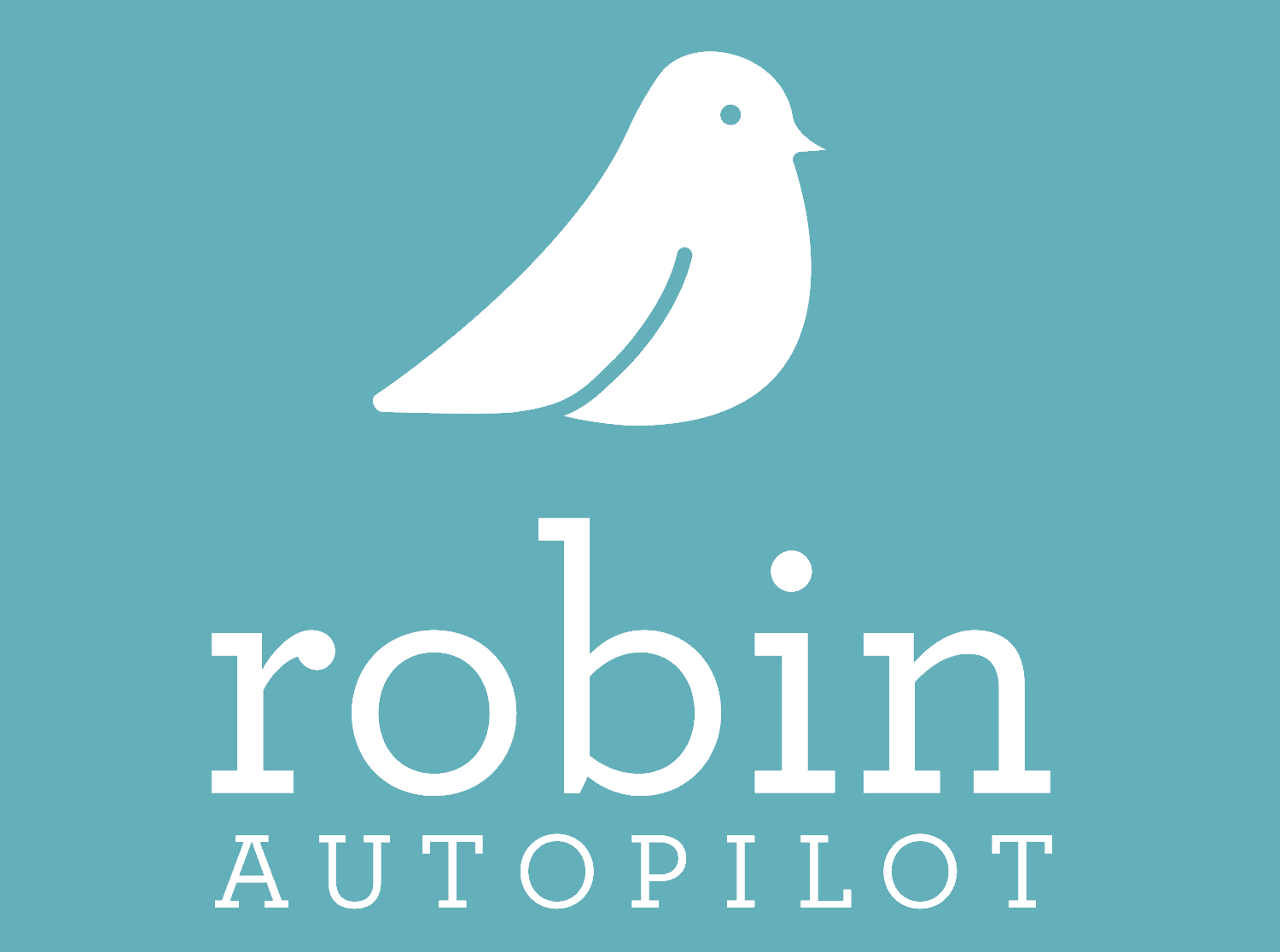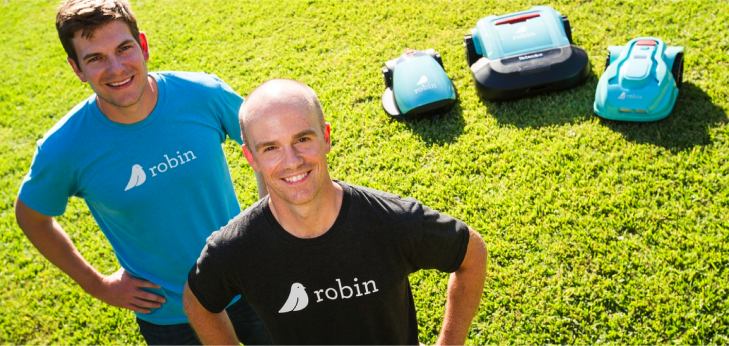Robin, which pitched a combined “Uber for lawn care” and robotic-lawnmower-as-a-service at Disrupt SF’s Startup Battlefield last year, is making some big changes. It quietly sold the first part to Porch earlier this year, and is now focused on expanding the robot service nationwide via a franchising plan. (And they’re going to be on Shark Tank.)
The service essentially subcontracted to local lawn care providers, allowing people to set up recurring mows and edging and so on without contracting with the companies themselves. On the robot side of the business, Robin essentially leased and supported custom lawnmower bots so customers could have that futuristic privilege without dropping two grand up front.
“When we announced at Disrupt, things were just booming,” co-founder and CEO Justin Crandall said. “Demand was as good as thought it would be.” But it became clear to them that the robotic side of the business was the future, and likely the easier one to grow.
So they sold the lawn service on demand part of the company in June to “one of the big marketplace type companies,” and although he declined to name it, I confirmed that it was Porch. (The company confirmed the purchase but did not provide any further details on the transaction.)
Meanwhile, when it came to robots, they determined that the best way to expand wouldn’t be to just offer the service in more and more places, but to set up a franchise system. So they rebranded the company to Robin Autopilot and are now looking for local partners.
 Basically, instead of leasing the robots to individual homeowners, they’ll be leasing the robots to local Robin franchises, which will do the local legwork that Robin normally does. Crandall says that if anyone was interested in getting into the business of robo-mowing, it could cost over a hundred grand to set up the infrastructure, buy the robots up front, hire staff, and so on.
Basically, instead of leasing the robots to individual homeowners, they’ll be leasing the robots to local Robin franchises, which will do the local legwork that Robin normally does. Crandall says that if anyone was interested in getting into the business of robo-mowing, it could cost over a hundred grand to set up the infrastructure, buy the robots up front, hire staff, and so on.
Robin will cover a bunch of that. “We built all the tools they need to manage robot inventory, build and manage customers, route crews and all that. In many ways it become a turnkey robotic lawn care business for the franchisee,” Crandall said.
They intend to start in southern states, where they already know the landscape, so to speak, and lawns are nice and big. California is a goal, but a few barriers make it a long-term one.
Plans for 2018 are relatively modest: “If we get to 20 [franchisees] this year, that would feel like a real good number for us, before we really expand next year.”
They’re hoping to target veterans; co-founder Bart Lomont is former Air Force and mentioned that vets like himself tend to be ideal candidates for starting local businesses like this. And while the franchisees will (ideally) create a nice cash flow for the main company, they don’t intend to give up the local mowing business just yet.
“We’re gonna keep some territory,” Crandall said. “We definitely want to be able to say, look, we’re doing our own here.”
The company is looking for a bit of crowdfunding via Fundable rather than hitting up VCs. They’re hoping to raise $500K to finance the switchover and expansion costs — purchasing the new robots for franchisees and so on.
Lastly, the company will also appear on Shark Tank this Sunday; the founders said that the judges (including Mark Cuban and Richard Branson in this episode) were highly entertained when the robot mower came out onto the fake grass they’d set up, through the little one-way door that lets it through but not any pets ranging around the yard. They’re not the first Battlefield company to go on the show, and I seriously doubt they’ll be the last.
